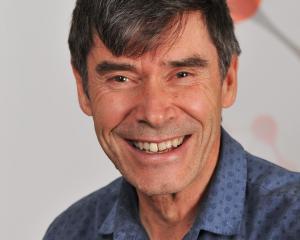
The board unanimously approved almost $8million in operating and capital expenditure to implement a "generalism" model at the hospital.
The business plan for the shift proposed 90% of patients who arrived at the hospital would be assessed by a generalist team and then sent to a medical assessment unit (MAU), and the most urgent cases then transferred to emergency.
Generalism is used in many New Zealand hospitals, including Southland Hospital, but critics argue its use could mean acute conditions are not treated as well and that some specialist knowledge could be lost.
The SDHB has debated the introduction of generalism in Dunedin for almost a decade.
Backers of the proposal argue it will ease pressure on an emergency department which struggles to meet its Ministry of Health-imposed target to have patients seen within six hours.
"Emergency is unable to cope during demand peaks, for example during winter," a report to the board said.
"By proposing a medical assessment unit built alongside the ED and staffed with the generalist admitting team/s, the proposal is to ‘pull’ patients from the ED into this unit and assess and discharge them quickly.
"This will increase the flow out of the ED and reduce the ward admissions required, which by default involves a longer length of stay in the hospital for patients."
Staff recommended the board introduce generalism alongside, an MAU as looming pressures due to the ageing population meant either simply introducing generalism or opting for the status quo would require an expansion of the emergency department to cope.
"The over 75-year-old population comprises 60% of the internal medicine intake and is projected to grow by 5% cumulatively over the decade prior to the opening of the full new Dunedin Hospital.
"A ‘do nothing’ approach to this problem will not allow the DHB to proactively prepare for and cope with this high level of growth."
Building the MAU next to emergency, an estimated $5.4million expense, will mean the physiotherapy gym and rheumatology outpatient services will need to relocate.
The business case for generalism also involves $2.4million in operating costs per annum, as it requires recruitment of additional senior medical officers (3.7 full time equivalent), nurses (9.7 FTE) and allied health staff (5.8 FTE).
The SDHB expected some costs of the new approach would be recouped by an expected reduction in average length of stay in hospital for patients — Dunedin Hospital patients had a higher length of time in the facility than similar hospitals and it was hoped generalism would reduce that, the report said.
Board member Lyndell Kelly (also an oncologist at Dunedin Hospital) said for generalism to work clinicians would need swifter access to diagnostic tools.
While she hoped the plan could solve the major issue of bed block (patients having to wait outside wards for a place to become available), she feared it would not without more resources for scanners.
The board approved the business plan, but was told implementation of the strategy would be complex.
A manager would be appointed to oversee the process, with the help of a steering group made up of senior managers and clinicians.
Expected issues included developing and implementing new protocols for admission, ensuring senior and specialist input was provided, and getting the MAU built as soon as possible.
Comments
The ED clinicians are brilliant. Apart from injury, which is triage priority, heart atrial in the elderly is a presenting condition. An intravenous procedure to jump the heart to regular is done at ED.
One of the nurses left to work for the Flying Doctor (Aust).
Reading this article it seems like the elephant in the room is a lack of beds. Sure, some people just need to see a GP, but given how hard it is to be taken seriously at ED (as in going back three times in a week before a begrudgingly granted CT reveals a brain bleed requiring neurosurgery) I am not convinced that more hurdles between the door and a bed is going to deliver better healthcare. This "solution" looks like it is focussed on metrics and not people or their health outcomes... but perhaps I should say: "so no change there then" ?












